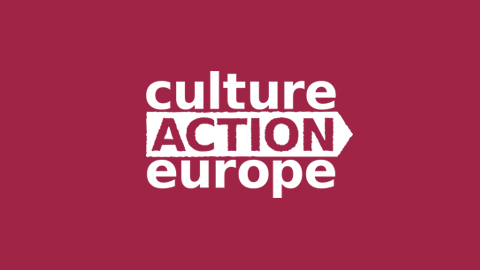
Progettiamo la cultura che verrà: quattro eventi online a cura di “Una città con te”
27 Maggio 2020
13° edizione di Artefatto | OPEN CALL PER STREET ARTISTS
16 Luglio 2020Uphold culture in the EU budget | A statement by Culture Action Europe

(A text coming from cultureactioneurope.org)
Uphold culture in the EU budget
A call for a central place for culture in the EU long-term recovery budget
Despite its historic relevance, the revised Multiannual Financial Framework (MFF) proposal presented by the European Commission on 27 May is unambitious for culture. Member States now have the opportunity to show that a forward-looking strategy for the Europe of tomorrow does not leave culture and its ecosystem behind.
Creative Europe
While we recognise the unprecedented effort to put together the biggest EU budget of all times, we note that the new MFF reduces funding for Creative Europe, the only EU programme dedicated to culture. Culture is the driving force holding the Union together: a European recovery strategy based on solidarity and fairness cannot treat culture as an auxiliary tool but needs to make it pivotal in all its actions.
Creative Europe’s unique purpose is to stimulate and support European cultural cooperation, as it raises professional standards within participating organisations, while creating innovative models of cooperation. This is particularly urgent at a time when the international dimension of culture is under particular threat, as most of the internationalisation budgets are cut or suspended, localisation tendencies are growing, and cross-border mobility is at risk.
In 2018, the Commission recognised that Creative Europe is underfinanced, despite its great potential: “The success rate declined from one programming period to another, reflecting that the schemes are insufficiently funded compared to the potential interest they generate; a large number of good applications are rejected.” Taking into account the initiatives that Creative Europe is supposed to cover, its budget is not capable of providing the support required for this already oversubscribed and underfunded programme. Doubling Creative Europe’s budget, as we have been asking for years together with the European Parliament, is more urgent than ever.
However, the Commission has made some step backwards by decreasing the overall figure from 1,64 billion euros in its previous proposal from May 2018 to 1,52 billion euros in its new Communication. As the new ambitious financial envelope to finance Europe’s recovery accounts for 1,85 trillion euros, Creative Europe represents only 0,08% of the whole package. This is a rather unambitious and short-sighted move for a strategy that expressly targets the next generation and the strengthening of more resilient and sustainable societies. Furthermore, it ignores the catastrophic impact that the COVID-19 pandemic and the subsequent lockdowns have had on cultural and creative sectors.
We share the reaction of the European Parliament CULT Committee rapporteurs: the new MFF proposal for Creative Europe is indeed “deeply disappointing”. The budget should show the necessary centrality for culture that can make a real difference to the sector, and to Europe
Next Generation EU
A few weeks ago, a statement on the new MFF by Culture Action Europe made it clear that “a recovery budget for Europe needs support for culture”, calling for 7% of the Recovery Fund to be earmarked for culture. Hence, we were encouraged to see that the new instrument presented by the Commission had been labelled “Next Generation EU”, a forward-looking way to focus on the future we want to build for the Europe of tomorrow.
Culture and creative operators are resourceful, resilient and inventive even in hard times. With increased funding, however, they would be able to achieve exponentially more. Furthermore, the cultural and creative sectors employ 8,4 million workers in the EU, nearly half of which are young people.
Despite this, Next Generation EU does not channel any additional money specifically to Creative Europe, disregarding the crucial role that culture has to play in building more resilient, sustainable, inclusive and fairer societies – all core objectives of the new recovery package.
The additional top-up cohesion funds foreseen, for example, under the REACT-EU initiative to support workers in regions and sectors most affected by the pandemic – among which also culture is mentioned -, must reach cultural operators. They often live in precarious conditions and are intermittent freelancers lacking protection under national social security systems.
To rebuild a sustainable post-pandemic Europe, supporting and investing in culture is not an option but a necessity.
Our calls:
Ahead of the European Council meeting on 19 June, we call on the Member States to:
- Double the budget of Creative Europe, as the core programme for reinforcing European cultural cooperation. (#Double4Culture).
- Make sure that the additional funds stemming from the Next Generation EU initiative, such as REACT-EU, reach cultural operators.
Read, endorse and share widely the statement:
-> https://cultureactioneurope.org/news/uphold-culture-in-the-eu-budget/
There will be no real recovery for Europe if culture is left behind.
